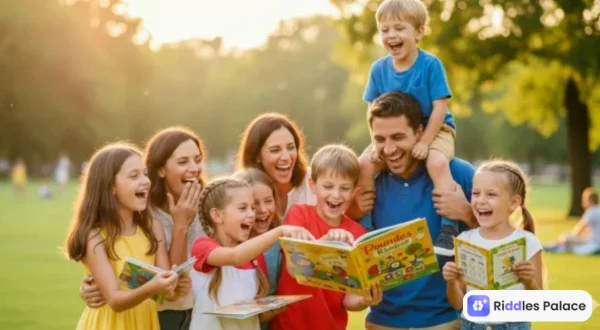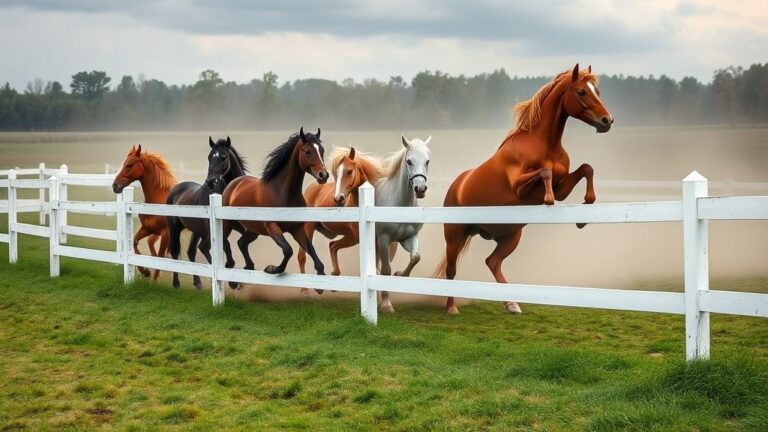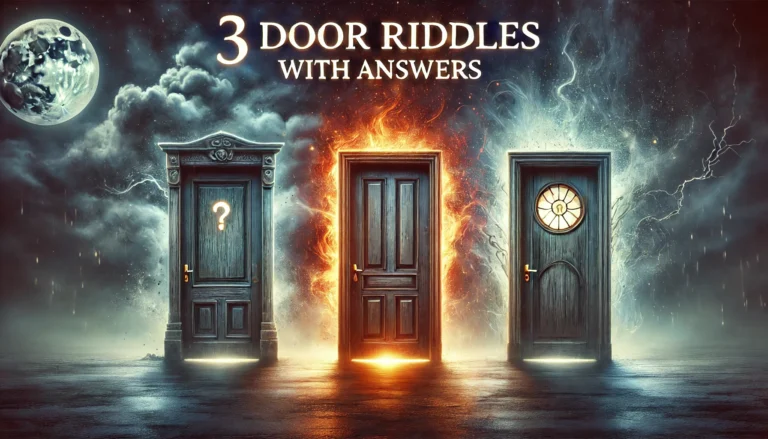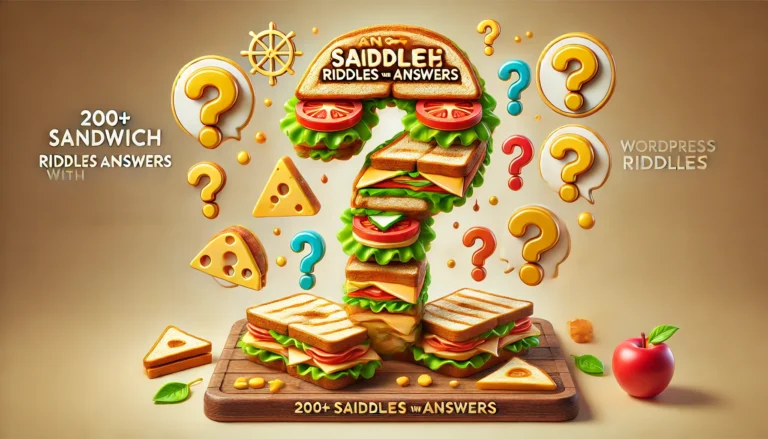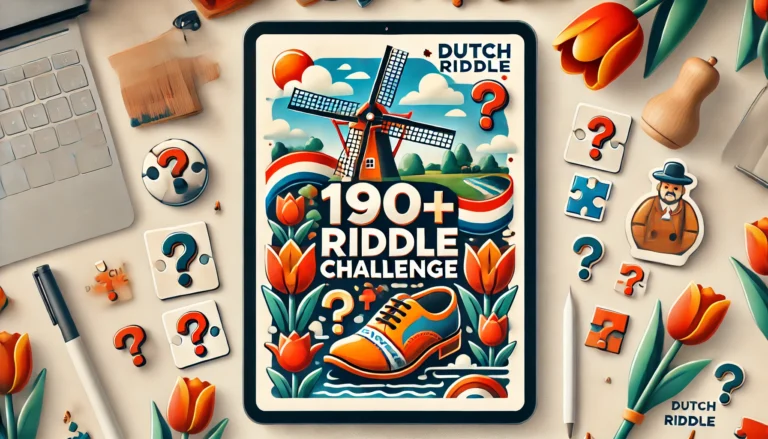100 Riddles for Kids With Answers (Family-Friendly Puzzles)
If you’re looking for fun, safe, and brain-boosting puzzles for children, you’ve found the right spot. This collection brings you 100 riddles for kids with answers — from easy brain teasers for preschoolers to trickier puzzles for older kids.
Every riddle comes with its answer, so parents, teachers, and kids can enjoy them together without frustration.
Use these riddles at home, in classrooms, at family gatherings, or even in party games. Plus, you can easily share with your friends and family, so you can make them laugh!
👉 “Want something unique? Create your own custom puzzles in seconds with our free AI Riddle Generator at Riddle Palace — the easiest way to make riddles on any topic!.
Quick Picks — 10 Easy Riddles to Share Right Now
- What has to be broken before you can use it?
→ An egg - I’m tall when I’m young, and short when I’m old. What am I?
→ A candle - What has a face and two hands but no arms or legs?
→ A clock - What goes up but never comes down?
→ Your age - What has four legs but can’t walk?
→ A chair - What gets wetter the more it dries?
→ A towel - What has teeth but doesn’t bite?
→ A comb - What has a head and a tail but no body?
→ A coin - What belongs to you but others use it more?
→ Your name - What has an eye but can’t see?
→ A needle
👉 Want more silly brain teasers? Check out our full list of funny riddles with answers.
How We Grouped These Riddles
We’ve divided these riddles into age-friendly sections so you can pick the right challenge:
- Preschool (ages 3–5)
- Early Elementary (ages 6–8)
- Upper Elementary (ages 9–10)
- Tweens (ages 11+)
- Family & Funny (for all ages together)
100 Best Riddles for Kids With Answers
Preschool Riddles (1–20)
(Ages 3–5 — short, easy, and visual)
- What color is the sky on a sunny day?
→ Blue - What’s round and shines at night?
→ The moon - What has wheels and goes “beep beep”?
→ A car - What animal says “quack”?
→ Duck - I’m green, I hop, and I say ribbit. What am I?
→ A frog - What’s yellow and shines bright?
→ The sun - What do cows give us to drink?
→ Milk - What’s soft, white, and falls from the sky in winter?
→ Snow - What goes “woof woof”?
→ A dog - What’s orange and crunchy, loved by rabbits?
→ Carrot - What do you ride to go up and down at the playground?
→ A slide - I have stripes and buzz around. Who am I?
→ Bee - What do you wear on your feet?
→ Shoes - What do you use to eat soup?
→ A spoon - What do you see with?
→ Eyes - What do birds lay?
→ Eggs - What has buttons you can’t eat?
→ A shirt - I’m red, round, and grow on trees. What am I?
→ An apple - What do you brush to keep clean?
→ Your teeth - What keeps your head warm in winter?
→ A hat
👉 For even simpler brain teasers, check our easy riddles for kids with answers.
Early Elementary Riddles (21–40)
(Ages 6–8 — fun & simple logic)
- What has keys but can’t open doors?
→ A piano - What’s full of holes but still holds water?
→ A sponge - The more you take away, the bigger I get. What am I?
→ A hole - What’s black and white and read all over?
→ A newspaper - What goes around the world but stays in one corner?
→ A stamp - What’s light as a feather but too heavy for anyone to hold for long?
→ Your breath - What runs but never walks?
→ Water - What comes down but never goes up?
→ Rain - What has one eye but cannot see?
→ A needle - What can you catch but not throw?
→ A cold - What has ears but cannot hear?
→ Corn - What has one head, one foot, and four legs?
→ A bed - What has a thumb and four fingers but isn’t alive?
→ A glove - I’m round and roll, but I’m not a wheel. What am I?
→ A ball - I’m always running but never move. What am I?
→ A clock - What begins with T, ends with T, and has T inside it?
→ A teapot - What has words but never speaks?
→ A book - What is always in front of you but can’t be seen?
→ The future - What kind of room has no doors or windows?
→ A mushroom - What gets sharper the more you use it?
→ Your brain
👉 Looking for sillier puzzles? Visit our full set of best funny riddles for kids.
Upper Elementary Riddles (41–60)
(Ages 9–10 — wordplay & math)
- I’m an odd number. Take away a letter and I become even. What am I?
→ Seven - What has many rings but no fingers?
→ A tree - The more you take, the more you leave behind. What am I?
→ Footsteps - I’m not alive but I grow; I have no mouth but need air. What am I?
→ Fire - What has a neck but no head?
→ A bottle - What gets bigger the more you share it?
→ Happiness - Forward I’m heavy, but backward I’m not. What am I?
→ Ton - I fly without wings and cry without eyes. What am I?
→ Cloud - What is 3/7 chicken, 2/3 cat, and 2/4 goat?
→ Chicago - What is so fragile that saying its name breaks it?
→ Silence - A man shaves many times a day but still has a beard. Who is he?
→ A barber - What comes once in a minute, twice in a moment, but never in a thousand years?
→ Letter M - I have branches but no fruit, trunk, or leaves. What am I?
→ A bank - What begins with E, ends with E, and contains only one letter?
→ Envelope - If you drop me, I’m sure to crack; give me a smile and I’ll always smile back. What am I?
→ A mirror - What can travel around the world while staying in the same spot?
→ A stamp - If two’s company and three’s a crowd, what are four and five?
→ Nine - What gets whiter the dirtier it gets?
→ A chalkboard - What is full of keys but locks no door?
→ A keyboard - What do you throw out when you want to use it, but take in when you don’t?
→ An anchor
👉 For more brain-stretchers, see our collection of math riddles for kids with answers.
Tweens Riddles (61–80)
(Ages 11+ — trickier logic)
- I speak without a mouth and hear without ears. What am I?
→ An echo - The more of me you take, the more you leave behind. What am I?
→ Time - What’s always coming but never arrives?
→ Tomorrow - What disappears the moment you say its name?
→ Silence - I’m always in you, sometimes on you; if I surround you, I can kill you. What am I?
→ Water - What comes down but never goes up?
→ Rain - I go up and down but never move. What am I?
→ Stairs - You see me once in a year, twice in a week, but never in a day. What am I?
→ Letter E - What can’t talk but replies when spoken to?
→ An echo - What has cities but no houses, rivers but no water, forests but no trees?
→ A map - What’s always in bed but never sleeps?
→ A river - The more of me you take, the more you leave. What am I?
→ Footsteps - I’m lighter than air but a hundred men can’t lift me. What am I?
→ A bubble - What has one head, one foot, and four legs?
→ A bed - What’s at the end of a rainbow?
→ Letter W - I’m a five-letter word, people eat me. Remove my first letter and I become an energy form. Remove the first two and I’m needed to live. Remove the first three and I’m a drink. Remove the first four and I’m a letter. What am I?
→ Wheat - What is 3 feet but cannot walk?
→ A yardstick - What invention lets you look through a wall?
→ A window - I can be cracked, made, told, and played. What am I?
→ A joke - What has hands but can’t clap?
→ A clock
Family & Funny Riddles (81–100)
(Silly, goofy, all ages)
- Why did the kid bring a ladder to school?
→ To go to high school - Why did the math book look sad?
→ It had too many problems - What’s brown and sticky?
→ A stick - Why don’t scientists trust atoms?
→ Because they make up everything - What do you call a sleeping bull?
→ A bulldozer - Why did the tomato blush?
→ It saw the salad dressing - What do you get when you cross a snowman and a dog?
→ Frostbite - What’s a vampire’s favorite fruit?
→ A blood orange - Why did the golfer bring two pants?
→ In case he got a hole in one - Why can’t your nose be 12 inches long?
→ Because then it’d be a foot - What do you call cheese that isn’t yours?
→ Nacho cheese - Why don’t skeletons fight each other?
→ They don’t have the guts - What do you call fake spaghetti?
→ An impasta - Why was six afraid of seven?
→ Because 7 8 9 - Why did the computer go to the doctor?
→ It caught a virus - What do you call a bear with no teeth?
→ A gummy bear - Why can’t a bicycle stand on its own?
→ It’s two-tired - What’s black, white, and can’t stop rolling?
→ A penguin on a hill - Why did the kid eat his homework?
→ The teacher said it was a piece of cake - What do you call a dinosaur that’s sleeping?
→ A dino-snore
👉 Explore related riddles! Visit our huge list of family-friendly riddles with answers.
How to Use These Riddles? (Teacher & Parent Pack)
Riddles aren’t just for laughs — they’re powerful learning tools. Here are simple ways to use them:
- In classrooms: Warm-up activities, critical thinking practice, or group competitions.
- At parties: Play “Riddle Race” — split kids into teams and award prizes.
- At family dinners: Keep kids engaged between meals.
- On social media: Post a daily riddle as a fun challenge.
👉 For step-by-step ideas, see our full guide on how to use funny riddles.
Games & Party Ideas
- Minute to Win It: Teams must solve as many riddles as possible in 60 seconds.
- Treasure Hunt: Hide answers around the house or classroom.
- Guess Who Riddle Game: Kids act out the answer without words.
Benefits of Riddles for Kids
- Improves vocabulary & language skills
- Strengthens critical thinking
- Builds social bonding through laughter
- Boosts memory and problem-solving
👉 Want to know about the benefits, see our full blog on the benefits of riddles for kids.
If you want to read and share more riddles, you can visit Riddle Palace on Social Media to share with your friends and family.
FAQs
Q: What are easy riddles for preschoolers?
A: Questions with visual, everyday answers (e.g., “What color is the sky?”).
Q: How do riddles help kids learn?
A: They improve problem-solving, language, and memory.
Q: Can I print these riddles for classrooms?
A: Yes! We provide a free PDF and slides.
Q: Are these riddles safe for all ages?
A: Absolutely — they’re family-friendly and clean.
Q: How do I make riddles a game at parties?
A: Try team-based challenges, treasure hunts, or speed rounds.
Q: Can I generate custom riddles?
A: Yes! Try our [riddle generator tool] to create puzzles instantly.
